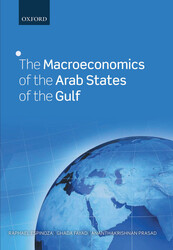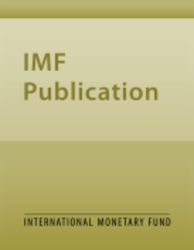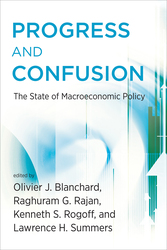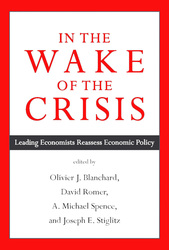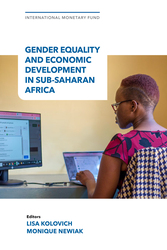
Gender Equality and Economic Development in Sub-Saharan Africa
This book explores the progress made in gender equality in sub-Saharan Africa, highlighting both the challenges and successes in areas such as legal reforms; education; health; gender-based violence; harmful practices, such as child marriage; and financial inclusion.
READ MORE...
Publication date: April 2024
ISBN: 9798400246968
$39.00
Add to Cart by clicking price of the language and format you'd like to purchase
Available Languages and Formats
| English |
Topics covered in this book
This title contains information about the following subjects.
Click on a subject if you would like to see other titles with the same subjects.
Banks and Banking , Labor , Economics- Macroeconomics , Gender Studies , gender equality macroeconomics fiscal policies legal rights structural policies financial access sub-Saharan Africa gender analysis , child marriage , care work , female-to-male labor force participation ratio , completion rate , social media usage , Women , Gender inequality , Gender budgeting , Sub-Saharan Africa , Africa , Global , Middle East and Central Asia , Asia and Pacific
Summary
Efforts to achieve gender equality will not only help sub-Saharan Africa revive its inclusive growth engine but also will ensure progress towards the Sustainable Development Goals and help address the main disruptive challenges of this century. This book explores the progress made in gender equality in the region, highlighting both the challenges and successes in areas such as legal reforms; education; health; gender-based violence; harmful practices, such as child marriage; and financial inclusion. It takes stock of initiatives towards integrating gender into core macroeconomic and structural reforms, such as through implementing gender budgeting and examines the role that fiscal and other policies can play in closing gender gaps when they are mindful of distributional impacts. Drawing from extensive research across different institutions, the book underscores the macroeconomic significance of gender equality, emphasizing its potential to drive GDP growth, enhance economic stability, reduce income inequality, and foster sustainable development. It lays out how gender gaps interact with emerging challenges, such as digitalization, and explores the impact of global megatrends, such as climate change, on gender inequality, offering strategies for inclusive policy responses—including in a context where women and girls are still carrying a disproportionate care burden that is often not captured in economic measurement. The book aims to serve as a roadmap for policymakers, stakeholders, and advocates seeking to harness the untapped potential of gender equality—for its own sake and for the region's inclusive, sustainable, and green development. It calls for concerted efforts to dismantle structural barriers, transform social norms, and prioritize gender-responsive policies to unlock the full economic potential of sub-Saharan Africa.
Copyright © 2010 - 2026
Powered by:
AIDC
